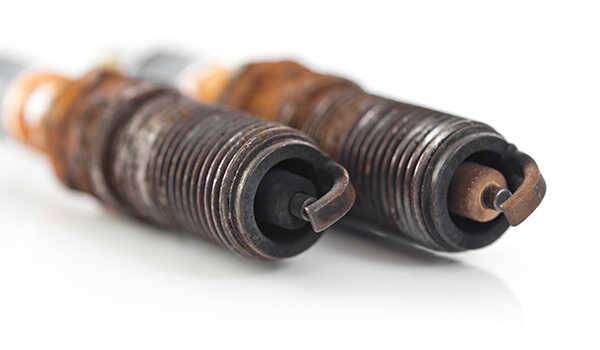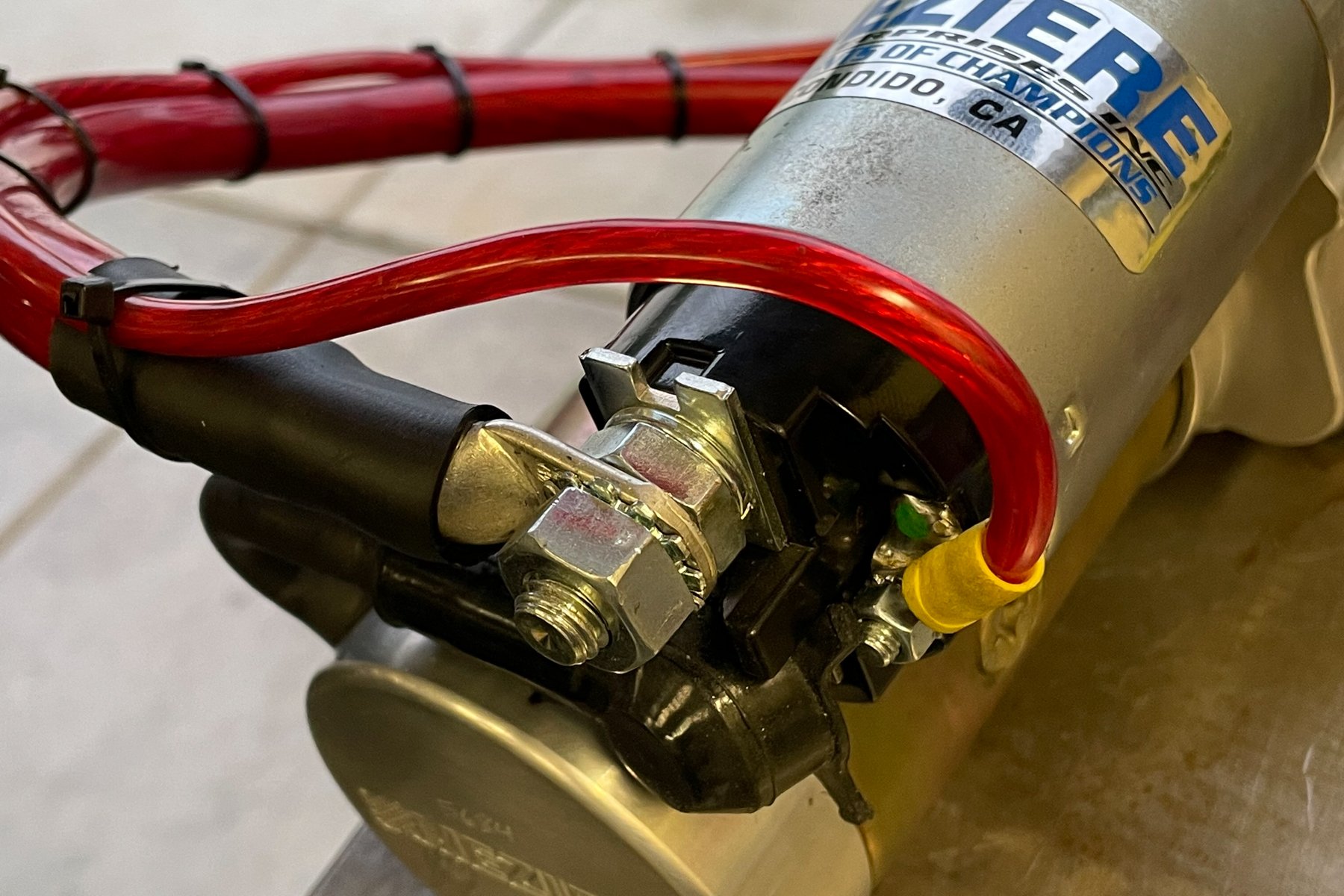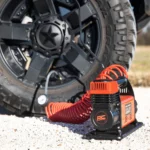Jeep Cherokee bad ground symptoms include electrical issues, dim lights, and starting problems. Addressing the ground connection can resolve these issues effectively.
When dealing with a Jeep Cherokee, it is imperative to recognize the signs of a bad ground connection to prevent potential issues. A bad ground can lead to various electrical problems, including dim or flickering lights, malfunctioning gauges, and difficulties starting the vehicle.
Understanding these symptoms can help in diagnosing and fixing the issue promptly, ensuring the proper functioning of your Jeep Cherokee. We will delve deeper into the symptoms and consequences of a bad ground connection in a Jeep Cherokee and provide tips on how to address this issue effectively.

Credit: www.autosuccessonline.com
Common Symptoms Of Bad Ground In Jeep Cherokee
Common Symptoms of Bad Ground in Jeep Cherokee
Intermittent Electrical Issues
Jeep Cherokee with bad ground may experience unpredictable electrical problems.
- Lights turning off and on unexpectedly.
- Radio cutting out sporadically.
- Inconsistent power window operation.
Flickering Lights
Flickering lights in your Jeep Cherokee could indicate a bad ground connection.
- Headlights dimming and brightening suddenly.
- Dashboard lights flickering erratically.
- Turn signals blinking irregularly.
Electrical System Malfunctions
When the electrical system of your Jeep Cherokee acts up, it might be due to a bad ground.
- Erratic behavior from the vehicle’s computer systems.
- Power locks failing to operate smoothly.
- Inconsistent performance of various electronic components.
Identifying Bad Ground In Jeep Cherokee
Visual Inspection
Look for corrosion or rust around grounding points on your Jeep Cherokee.
Check for loose connections or damaged wires near the ground terminals.
Voltage Drop Testing
Use a voltmeter to measure voltage drop across the ground connections.
High voltage drop indicates a poor ground connection that needs attention.
Multimeter Testing
Set your multimeter to ohms and check for resistance in the ground circuit.
Low resistance signifies a good ground, while high resistance suggests an issue.
Causes Of Bad Ground In Jeep Cherokee
Bad ground in a Jeep Cherokee can lead to various symptoms and issues, causing inconvenience and potential safety hazards. Identifying and addressing the causes of bad ground is crucial in maintaining the optimal performance and reliability of your vehicle. Understanding the potential reasons for a bad ground in your Jeep Cherokee can help you take appropriate measures to prevent or rectify these issues. Let’s explore the common causes of bad ground in Jeep Cherokee.
Corrosion
Corrosion of grounding points can disrupt the flow of electrical current in your Jeep Cherokee, leading to malfunctions in various components. Moisture and salt deposits can accelerate corrosion, impacting the effectiveness of the grounding system. Regular inspection and cleaning of grounding points are essential to prevent corrosion-related issues.
Loose Connections
Loose connections at grounding points can result in intermittent electrical connectivity, causing erratic behavior in the vehicle’s systems. The vibrations and jolts experienced during off-road driving can exacerbate the problem. Tightening and securing the connections can help eliminate this issue.
Poor Wiring
Inadequate or damaged wiring can compromise the grounding system in your Jeep Cherokee. Frayed or worn-out wires can impede the flow of current, leading to various electrical malfunctions. Proper maintenance and timely replacement of damaged wiring are essential to ensure a reliable ground connection.
Effects Of Bad Ground On Vehicle Performance
Bad ground in a Jeep Cherokee can lead to various symptoms impacting vehicle performance. These can include electrical issues, irregular functioning of lights and accessories, and potential stalling or starting problems. Addressing bad ground connections promptly can help maintain optimal vehicle performance.
When your Jeep Cherokee has a bad ground, it can potentially lead to various performance issues that can affect your driving experience and vehicle functionality. It is essential to address these issues promptly to prevent further damage and ensure your safety on the road.
Diminished Battery Life
A bad ground can significantly impact the life of your Jeep Cherokee’s battery. When the ground connection is faulty, the battery may not receive a proper charge and can drain quickly. This can result in frequent battery replacements, leading to unnecessary expenses and inconvenient breakdowns. Additionally, a weakened battery can cause unreliable starts or difficulties powering your vehicle’s electrical systems, affecting overall performance.
Damage To Electrical Components
A bad ground can wreak havoc on the electrical components of your Jeep Cherokee. Without a proper ground connection, the flow of electricity may become erratic or unstable, leading to damage or malfunction of various systems. Important electrical components such as the ignition system, lights, radio, and dashboard functions can be adversely affected. This can result in non-functional controls, flickering lights, or even complete system failure. Timely resolution of bad ground issues is crucial to prevent costly repairs or replacements of electrical components.
Potential Safety Concerns
Ignoring a bad ground in your Jeep Cherokee can have serious safety implications. Faulty grounding can disrupt the functioning of crucial safety systems such as ABS (Anti-lock Braking System), airbags, and traction control. This can compromise your ability to control the vehicle during emergency situations, increasing the risk of accidents or injuries. Additionally, a bad ground can interfere with the proper functioning of lights, including headlights and brake lights, affecting visibility and signaling to other drivers on the road. It is crucial to prioritize safety by addressing bad ground symptoms promptly and seeking professional assistance to avoid potential hazards.
Addressing Bad Ground In Jeep Cherokee
The Jeep Cherokee is a rugged and reliable vehicle, but like any other car, it can experience electrical issues. One of the common problems that Jeep Cherokee owners face is bad ground connections. When the ground wires in your Jeep Cherokee are faulty or loose, it can cause various symptoms, affecting the performance of your vehicle’s electrical system. In this article, we will discuss the symptoms of bad ground in a Jeep Cherokee and explore the steps you can take to address this issue.
Cleaning Ground Points
If you notice symptoms such as flickering lights, intermittent power loss, or malfunctioning electrical components, it could be a sign of a bad ground connection. The first step in addressing this issue is to clean the ground points in your Jeep Cherokee. Over time, dirt, corrosion, and rust can build up on the ground points, hampering conductivity and causing electrical problems.
To clean the ground points, follow these steps:
- Start by disconnecting the negative terminal of your Cherokee’s battery to prevent any accidental electrical shocks.
- Locate the ground points, which are typically located on the frame of the vehicle and the engine block.
- Use an abrasive pad or wire brush to remove any dirt, corrosion, or rust from the ground points.
- After cleaning, apply a thin layer of dielectric grease to the ground points to prevent future corrosion.
- Finally, reattach the negative terminal of the battery and start your Cherokee to see if the symptoms have improved.
Repairing Faulty Connections
If cleaning the ground points doesn’t resolve the issue, it’s time to inspect the ground connections for any faults. Faulty connections can occur due to loose or damaged wires, loose terminals, or disconnected grounds. Here are the steps you can follow to repair faulty ground connections:
- Start by visually inspecting all the ground wires in your Jeep Cherokee. Look for any signs of damage, such as frayed or disconnected wires.
- If you find a damaged ground wire, use wire cutters to remove the damaged portion and strip the ends of the wire.
- Next, use a crimping tool or soldering iron to attach a new terminal to the ground wire.
- Tighten any loose ground connections using a wrench or socket set, ensuring a secure and tight connection.
- Ensure all ground wires are connected to their respective ground points securely.
Upgrading Wiring
If you have tried cleaning the ground points and repairing faulty connections without success, it may be a good idea to consider upgrading your wiring. Upgrading the wiring in your Jeep Cherokee can improve the overall conductivity and reduce the risk of future ground issues.
When upgrading your wiring, consider the following:
- Replace old and worn-out wires with high-quality, heavy-gauge wires.
- Use proper wire connectors and terminals to ensure a secure and reliable connection.
- Ensure all the wiring is properly routed and protected from potential damage.
- Consider adding additional ground points to distribute the electrical load evenly.
By addressing bad grounds in your Jeep Cherokee through cleaning, repairing faulty connections, and upgrading wiring, you can ensure a reliable and efficient electrical system. Remember to always prioritize safety and consult a professional if you are unsure about any electrical repairs.

Credit: issuu.com
Professional Solutions For Bad Ground Issues
When it comes to addressing bad ground symptoms in your Jeep Cherokee, it’s essential to consider professional solutions that ensure optimal performance and safety. Dealing with bad ground issues requires expertise and knowledge to effectively diagnose and resolve the problem. In this guide, we will explore professional solutions for bad ground issues, including diagnostic scans, professional rewiring services, and aftermarket grounding solutions.
Diagnostic Scans
Professional diagnostic scans play a crucial role in identifying bad ground symptoms in your Jeep Cherokee. Using advanced scanning tools, technicians can pinpoint the exact locations of faulty grounding, allowing for precise and effective repairs.
Professional Rewiring Services
Experienced professionals offer specialized rewiring services to address bad ground issues in your Jeep Cherokee. Their expertise ensures that the rewiring process is done meticulously, replacing faulty wiring and connections with high-quality components to ensure long-term reliability.
Aftermarket Grounding Solutions
For those seeking aftermarket solutions to improve grounding in their Jeep Cherokee, there are specialized grounding kits available. These kits are designed to enhance the electrical grounding system, providing a more robust and efficient connection to prevent future bad ground symptoms.
Preventive Measures For Avoiding Bad Ground Issues
Regular Maintenance Checks
Performing routine maintenance checks can help identify and address potential bad ground issues before they escalate.
Applying Dielectric Grease
Using dielectric grease on electrical connections can prevent corrosion and ensure a secure grounding connection.
Proper Grounding Techniques
- Ensure all ground connections are clean and tight
- Use a multimeter to test for proper grounding
- Avoid overloading ground connections
Understanding Electrical Grounding In Vehicles
Functions Of Electrical Grounding
Electrical grounding in vehicles ensures safety from excessive current flow.
Different Types Of Grounding Systems
- Chassis Grounding:
- Signal Grounding:
- Earth Grounding:
Impact On Vehicle Safety
Proper grounding prevents electrical malfunctions.
Influence Of Bad Ground On Modern Vehicle Electronics
Modern vehicles are equipped with advanced electronic systems that rely heavily on a stable ground connection for proper functioning. When the ground connection is compromised, it can cause various symptoms that negatively impact the vehicle’s electronics. Understanding the influence of bad ground on modern vehicle electronics is crucial for diagnosing and addressing issues with the Jeep Cherokee’s electronic systems.
Electronic Control Modules
The electronic control modules (ECMs) in modern vehicles play a pivotal role in managing various functions, including engine performance, transmission, and emissions control. A bad ground can disrupt the ECM’s ability to send and receive signals, leading to erratic behavior and performance issues. This can manifest as engine misfires, rough idling, and poor fuel efficiency. Additionally, electrical spikes caused by a bad ground can potentially damage the ECM, resulting in costly repairs.
Sensors And Actuators
Sensors and actuators are integral components of a vehicle’s electronic control system, responsible for gathering data and executing commands to optimize performance and efficiency. When the ground connection is compromised, sensors may provide inaccurate readings, leading to erratic behavior from actuators. This can result in improper fuel delivery, malfunctioning emissions controls, and compromised safety systems. Additionally, a bad ground can lead to premature sensor and actuator failure, requiring costly replacements.
Can Bus Communication
The controller area network (CAN) bus is a key communication network used by modern vehicles to facilitate data exchange between various electronic modules. A bad ground can introduce electrical noise and interference in the CAN bus, leading to communication errors and data corruption. This can result in malfunctions across the vehicle’s electronic systems, including issues with instrument cluster displays, infotainment systems, and safety-related features.
Case Studies: Real-life Examples Of Bad Ground Issues
Case Studies are a powerful tool for understanding real-life examples of bad ground issues in Jeep Cherokees. By examining various scenarios where bad grounding caused significant problems, we can gain valuable insights into the symptoms and effects of this issue. In this section, we will explore three compelling case studies that demonstrate the importance of addressing bad ground problems in your Cherokee.
Case Study 1: Recurring Lighting Problems
If you’ve ever experienced recurring lighting problems in your Jeep Cherokee, you’re not alone. In this case study, we’ll delve into a common issue where faulty grounding was the root cause of repeated lighting failures.
Scenario:
- Owner noticed that the headlights and taillights would frequently flicker or completely stop working.
- Bulbs were regularly replaced, but the problem persisted.
- Diagnosis revealed that the grounding wire for the lighting system was loose and not making proper contact, leading to intermittent failures.
- Once the problematic ground connection was identified and fixed, the lighting issues disappeared.
This case study highlights the importance of checking and maintaining proper grounding connections to ensure the reliability of your Jeep Cherokee’s lighting system.
Case Study 2: Mysterious Electrical Failures
Electrical failures can be frustrating and puzzling for Jeep Cherokee owners. In this case study, we’ll explore an instance where bad grounding caused various mysterious electrical problems.
Scenario:
- The owner experienced random malfunctions, including power windows not working, intermittent loss of power to the radio, and the interior lights not functioning correctly.
- Multiple components were tested individually and found to be in working order.
- An inspection revealed that several ground connections were corroded or loose, leading to inconsistent electrical grounding.
- Repairing and cleaning the grounding connections resolved the electrical failures, restoring proper functionality.
This example emphasizes the importance of thoroughly inspecting and maintaining all grounding connections to prevent mysterious electrical failures in your Jeep Cherokee.
Case Study 3: Dangerous Grounding Issues
Bad ground issues can extend beyond mere inconvenience and pose a risk to your safety. In this case study, we’ll examine a particularly dangerous grounding issue that affected a Jeep Cherokee owner.
Scenario:
- The driver experienced sudden loss of power steering while maneuvering at high speeds.
- Further investigation revealed that a corroded ground connection for the power steering system was obstructing the flow of electrical current.
- This interruption in current resulted in intermittent power steering failure, posing a severe safety hazard.
- Replacing the corroded ground connection resolved the issue and restored proper power steering functionality.
This case study highlights the critical nature of addressing bad ground issues promptly to prevent potentially dangerous situations while driving your Jeep Cherokee.
Technical Insights Into Jeep Cherokee Electrical System
In understanding the electrical system of your Jeep Cherokee, it is essential to dive into its technical aspects. With a focus on wiring layout, grounding points, and electrical distribution, we gain a comprehensive understanding of how the system works, and the symptoms that may arise due to bad ground connections.
Wiring Layout
The wiring layout of a Jeep Cherokee plays a crucial role in ensuring smooth electrical system functionality. It consists of an intricate network of wires that connect various components, facilitating the flow of electrical current throughout the vehicle. The wiring layout directs power to lights, sensors, switches, and other electrical devices.
A well-organized and correctly implemented wiring layout is vital for avoiding issues related to faulty connections and electrical failures. When the wiring layout is compromised, it may lead to symptoms such as flickering lights or intermittent power loss in various electrical components of the Jeep Cherokee.
Grounding Points
Grounding points are significant in the electrical system of your Jeep Cherokee as they provide a safe path for electrical currents to return to the battery. These grounding points ensure that the electrical components have a stable and reliable connection to the vehicle’s body, preventing electrical interference and potential damage.
It is crucial to ensure that the grounding points are clean, free from corrosion, and properly secured. When grounding points become compromised, symptoms such as electrical surges, dim lights, or inoperative devices may occur. Identifying and addressing any bad ground connections becomes imperative to restore optimal electrical system performance.
Electrical Distribution
Proper electrical distribution is paramount for the efficient and reliable functioning of your Jeep Cherokee. The electrical distribution system comprises various components such as fuses, relays, and distribution boxes, which regulate the flow of electricity to different circuits in the vehicle.
When the electrical distribution system malfunctions, it can manifest through symptoms like malfunctioning accessories, intermittent power loss, or even complete electrical system failure. It is crucial to pay attention to these symptoms as they may be indicative of underlying issues in the electrical distribution system, highlighting the possibility of bad ground connections.

Credit: www.dragzine.com
Frequently Asked Questions For Jeep Cherokee Bad Ground Symptoms
What Are The Common Symptoms Of Bad Grounding In A Jeep Cherokee?
Bad grounding in a Jeep Cherokee can result in various symptoms. These include dim or flickering lights, erratic behavior of electrical components, difficulty starting the vehicle, intermittent power loss, and even electrical fires in extreme cases.
How Does Bad Grounding Affect The Performance Of A Jeep Cherokee?
Bad grounding can have a significant impact on the performance of a Jeep Cherokee. It can cause electrical malfunctions, leading to issues like poor fuel efficiency, engine misfires, irregular idling, problems with the ignition system, and even failure of important systems like the ABS and traction control.
What Are The Potential Causes Of Bad Grounding In A Jeep Cherokee?
Several factors can lead to bad grounding in a Jeep Cherokee. These include corroded or loose connections, damaged or frayed wiring, faulty grounding straps or cables, poor installation of aftermarket accessories, and even wear and tear over time. It is essential to address these issues promptly to avoid further damage to the vehicle’s electrical system.
Conclusion
Understanding the bad ground symptoms of a Jeep Cherokee is crucial for maintaining its optimal performance and safety. By being aware of these signs, you can take timely action to address any issues and prevent potential problems. Regular inspections and maintenance can go a long way in ensuring the longevity and reliability of your Jeep Cherokee.









